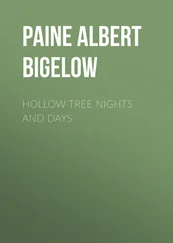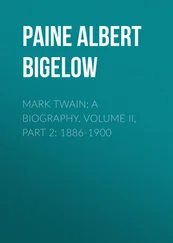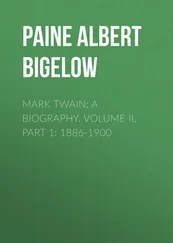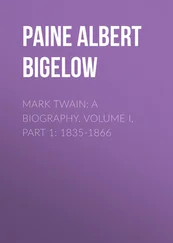Albert Paine - Life and Lillian Gish
Здесь есть возможность читать онлайн «Albert Paine - Life and Lillian Gish» — ознакомительный отрывок электронной книги совершенно бесплатно, а после прочтения отрывка купить полную версию. В некоторых случаях можно слушать аудио, скачать через торрент в формате fb2 и присутствует краткое содержание. Жанр: foreign_prose, foreign_antique, на английском языке. Описание произведения, (предисловие) а так же отзывы посетителей доступны на портале библиотеки ЛибКат.
- Название:Life and Lillian Gish
- Автор:
- Жанр:
- Год:неизвестен
- ISBN:нет данных
- Рейтинг книги:3 / 5. Голосов: 1
-
Избранное:Добавить в избранное
- Отзывы:
-
Ваша оценка:
- 60
- 1
- 2
- 3
- 4
- 5
Life and Lillian Gish: краткое содержание, описание и аннотация
Предлагаем к чтению аннотацию, описание, краткое содержание или предисловие (зависит от того, что написал сам автор книги «Life and Lillian Gish»). Если вы не нашли необходимую информацию о книге — напишите в комментариях, мы постараемся отыскать её.
Life and Lillian Gish — читать онлайн ознакомительный отрывок
Ниже представлен текст книги, разбитый по страницам. Система сохранения места последней прочитанной страницы, позволяет с удобством читать онлайн бесплатно книгу «Life and Lillian Gish», без необходимости каждый раз заново искать на чём Вы остановились. Поставьте закладку, и сможете в любой момент перейти на страницу, на которой закончили чтение.
Интервал:
Закладка:
If one might have looked into Mary Gish’s heart at this time, just what would one have found there? Chiefly, of course, devotion to her children—thought of their immediate welfare and needs. After that? Was it to equip them for the career of actresses—a life which, unless they were at the top, was hardly to be called enviable, and even at its best was one of impermanent triumphs and fitful rewards? She knew pretty well that with their special kind of beauty, which each day she saw develop—their flair for subtle phases of human portrayal—given health, they could count on at least reasonable success. Did she greatly desire that? I think not. I think she considered it, but that her real purpose was to keep her children and herself on the stage only until by close, the very closest, economy, she had saved enough to establish herself in a permanent business which would give them a home, where they could go to school and grow into normal, or what she regarded as normal, womanhood. I think the old prejudice which she had shared with her family as to the theatre, did not die easily, and that for years she felt herself more or less “beyond the pale,” willing to stay there only because it meant a livelihood, with the possibility of something better, something with a home in it, not too far ahead. We shall see the effort she made in this direction, by and by, and what came of it—how the web of circumstance had its will with her, as with us all.
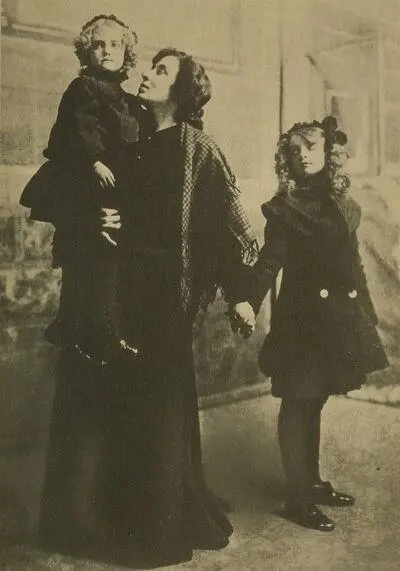
A SCENE FROM “HER FIRST FALSE STEP”
Whatever her plan, Mary Gish saw that she must educate her children. Herself reared in a town that rather specializes in education, she had known the advantage of excellent public schools. That her children should have less than herself was a distressing thought. From little books, at every spare moment, she taught them. In every town of importance, she made it her business to learn what she could of its history, its population, its industries, and of these she told them in as interesting a form as she could invent. In the South, she told them of the war; when it was possible, showed them landmarks, often taking them on little excursions.
In one city she had a special interest: Chattanooga, where an uncle, a Captain McConnell, had been killed in the battle above the clouds. When she found they had time there, she took the children for a drive up Lookout Mountain, telling them the story as they went along. And then a remarkable thing happened: they came to a tablet by the roadside, and paused to read the inscription. It was a tablet to Captain McConnell, commemorating his bravery.
She did not hold them to schoolbooks. She read them story books, or allowed an actor named Strickland—“Uncle High” in the play, because he was so tall—to read to them—from “Black Beauty,” which was their favorite, and Grimm’s and Andersen’s Fairy Tales. In a seat on the train, when all were awake at once, or during a wait in a station—oh, anywhere—Uncle High was faithful, and those little girls never ceased to remember it.
Uncle High was really very tall—“six feet six, and skinny as a blue-racer” according to one of the notices. In the play there was a house-warming, at which he was one of the guests. When Uncle High entered, Lillian, the “golden-haired grandchild,” was moved to examine him. They stood just at the footlights, and very deliberately she looked him up and down until the snickering audience was still. Then very gravely: “Grandpa, what is he standing on?” a line, according to Uncle High, that was “always a scream.”
“Uncle High” further remembers that “no matter what time of night Lillian and Dorothy had to get out of a warm, comfortable bed to catch a train, or how many times they had to be awakened to change cars, no one ever heard a whimper or complaint from either, and I cannot recall one instance where they ever found any fault with anything, and I never heard their mother speak a cross word to either of them. Lillian was just like a little mother to Dorothy, and looked after her all the time. Her whole life seemed to be to watch that nothing happened to her little sister. And Lillian only eight years old .” She was, in fact, considerably less.
Mrs. Gish’s skillful handicraft included drawing. She had received no art instruction but her pen sketches were exquisite. She thought them poor, and destroyed them. There remains only a water-color interior—subtle in tone, atmospheric—of a quality that commands immediate attention.
It seems curious that she should also have had a taste for mechanics. Delicate mechanics. She enjoyed taking a clock apart and putting it together again. A clock that did not go was her delight. Once that winter, when they were all together, a clock in their room had gone out of commission. Mary Gish examined it, then set to work. In a brief time she had it on the operating table, the pieces here and there. Dorothy’s deep interest may have had something to do with the fact that when she came to assemble them, two insignificant bits seemed to be missing. Never mind, the clock would go without them. It would go, but with a gay indifference to time, and every little while made queer noises in its inside. Lillian and Dorothy, in bed in that room, laughed themselves to sleep, listening to its complaints.
They found amusement where they could—the situation was so often barren enough. Once, remembering, Lillian said:
“Sometimes the theatre was very poor, and the dressing-rooms nearly always bad (even to this day they could be better). Some were worse than others. At a theatre in Chicago, a theatre of the second or third class, a good way out, the dressing-rooms were in a kind of cellar. There was water on the floor—we had to walk on boards. I remember the big, black water-bugs. Mother had to shake out our dresses, before we put them on.
“The Gerry Society was very strict in Chicago. We hardly dared to show ourselves outside the theatre and hotel. Four or five years later, when I was perhaps twelve, and we were there again, Mother put me into long skirts and high heels, so that I could look sixteen, and reduce the risk. I felt very proud to be grown-up in that sudden way.”
But the winter travel was hardest. One town they were to play could be reached only from a junction, six miles distant. That night a terrible blizzard came up, and the company, quite a large one, had to be driven cross-country in big farm sleighs, bedded with straw. It was terribly cold, their feet became ice. And when they arrived, the train was five hours late! The place was just a telegraph office; the little girls were allowed to stretch out on the desks, which were sloping;—members of the company took turns, holding them from rolling off.
The problem of food was a serious one, especially in the smaller towns of the Middle West. Dorothy was robust, and seemed to thrive on anything; Lillian needed better fare.
“Dorothy and I lived, when we could, on ice-cream and cake. Mother would give us fifteen cents, and we would spend ten cents for ice-cream, half vanilla and half chocolate. With the other five we bought lady-fingers. We mixed the cream, stirred the two kinds together, and made ‘mashed potatoes’; then we spread it on the lady-fingers.”
It does not seem very substantial, nor an over-plentiful allowance. They were being very economical, trying to get a little money ahead. At one wonderful restaurant—in some Western town—they were able to get a meal for ten cents! Just one place like that: soup, meat, potatoes, and a piece of pie! Perhaps it was not very good, but it seemed good, to them.
And two places in the South—good negro cooking:
Читать дальшеИнтервал:
Закладка:
Похожие книги на «Life and Lillian Gish»
Представляем Вашему вниманию похожие книги на «Life and Lillian Gish» списком для выбора. Мы отобрали схожую по названию и смыслу литературу в надежде предоставить читателям больше вариантов отыскать новые, интересные, ещё непрочитанные произведения.
Обсуждение, отзывы о книге «Life and Lillian Gish» и просто собственные мнения читателей. Оставьте ваши комментарии, напишите, что Вы думаете о произведении, его смысле или главных героях. Укажите что конкретно понравилось, а что нет, и почему Вы так считаете.

